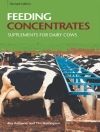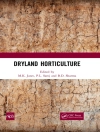Maize is a globally important crop mainly utilized as feed, food and raw material for diverse industrial applications. Among cereals, it occupies third place after rice and wheat and is a staple food for a large segment of population worldwide particularly in the Asian as well as African countries. This monogram discusses various aspects of nutritional quality of maize such as quality protein maize which has been considered as most significant discovery in enhancing nutritional quality of cereals in terms of increasing the concentration of essential amino acids. The biochemistry of starch which is an important industrial product of maize has been discussed in detail. Further, the role of maize oil which is highly regarded for human consumption as it reduces the blood cholesterol concentration has also been elaborated. Naturally, maize is a rich source of carotenoids such as beta-carotene, zeaxanthin, lutein, cryptoxanthin which have highly diverse health benefits ranging from maintaining normal vision to lowering of oxidative stress. The need for biofortification of maize for provitamin A carotenoids and their role in alleviating vision impairments have also been discussed. The effect of various biotic and abiotic stresses particularly carbon dioxide and temperature on quality has been discussed thoroughly. Many value-added products as well as fermented foods that have been produced from maize which is consumed in different forms worldwide are also discussed. The aspects related to the maize application as fodder and as a source of malting have also been covered concisely. Overall, the book provides complete information about various quality aspects of maize. The various stakeholders such as maize researchers, extension specialists, students, teachers as well as farmers will be immensely benefitted from this monogram.
Spis treści
Section A: Introductory chapter.- 1. Nutritive value of maize: Improvements, applications and constraints.- Section B: Protein quality of maize.- 2 Breeding challenges and perspectives in developing and promoting quality protein maize germplasm.- 3 Maize protein quality and its improvement- development of quality protein maize (QPM) in India.- 4 Molecular interventions for enhancing the protein quality of maize.- Section C: Nutritional quality of maize.- 5 Maize: Grain structure, composition, milling and starch characteristics.- 6 Oil improvement in maize: potential and prospects.- 7.Maize carotenoid composition and biofortification for provitamin a activity.- Section D: Biotic and abiotic stresses in maize.- 8 Insect pests and their management: current status and future need of research in quality maize.- 9. Physiological response of maize under rising atmospheric CO2 and temperature.- Section E: Value addition in maize.- 10 Maize utilization in food bioprocessing: An overview.-11 Maize malting: Retrospect and prospect.- 12. Value addition in maize.- 13. Fodder quality of maize: its preservation.
O autorze
Dr. Dharam Paul Chaudhary is working as Senior Scientist (Biochemistry) at Directorate of Maize Research (DMR), an institute of Indian Council of Agricultural Research (ICAR), New Delhi, which is a leading national institute looking after various scientific and coordinating activities related towards the development of maize. His present work is focused towards the development of quality protein maize (QPM) which is nutritionally superior compared to normal maize. He has in his credit more than 30 scientific publications in the journals of national and international repute.
Dr. Sandeep Kumar is working as Senior Scientist (Biochemistry) at Germplasm Evaluation Division, National Bureau of Plant Genetic Resources (NBPGR), an institute of Indian Council of Agricultural Research (ICAR), New Delhi. He has to his credit more than 20 scientific publications in the journals of national and international repute.
Ms. Sapna is working as Scientist, Biochemistry at Directorate of Maize Research, New Delhi. She is engaged in maize quality studies and her major research interests are carotenoids in maize since carotenoids play an important role in human nutrition and its deficiency may lead to various health related problems including blindness.












